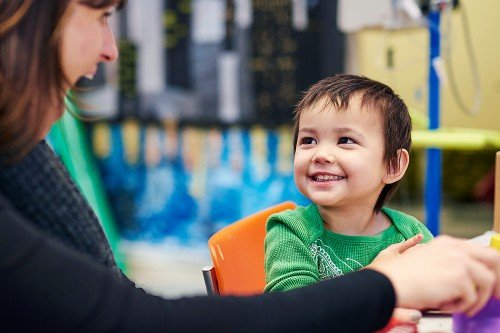
It's normal for children to have mixed feelings about returning to school, says Stephen Sands, a neuropsychologist and child psychologist at MSK.

Stephen Sands
Getting back into the swing of the school year can be difficult for any child. But for children who have missed school due to cancer treatment, returning to the classroom after a long absence can be especially challenging. Memorial Sloan Kettering neuropsychologist and child psychologist Stephen Sands regularly works with families readying for this change. At MSK’s Counseling Center, he and his team meet with children to see how they’re doing after treatment, both cognitively and emotionally. As part of the comprehensive care available at MSK Kids, they offer tools to address any difficulties children may be having.
Here, Dr. Sands shares ideas for how parents can help their child get the school year off to a great start.
When Talking with Your Child
Make space for feelings. Remember that it’s completely normal for children to have mixed emotions about returning to school. They may be thrilled to be back in a routine with their friends but nervous about looking different or not fitting in. All feelings are welcome. “Create an opportunity for your child to voice whatever concerns they have in an open, nonjudgmental fashion, and then try to support them,” advises Dr. Sands.
Come up with a plan. Ask your child how they would like to handle questions about their illness. Some kids may be comfortable talking about it, but others may not.
Encourage autonomy. Gaining independence is an important step in every young person’s development. “Ask yourself, ‘If my child hadn’t been sick, what would they do right now?’ ” says Dr. Sands. “If they want to be in the theater club or go to a Saturday football game, try not to let your or your child’s anxiety get in the way.”
When Talking with Your Child’s School
Know your options. Students with disabilities can receive structured help with schoolwork through an Individualized Education Program or a 504 plan. Ask your child’s MSK care team or school principal for more information.
Do some homework. Find out who your child’s teachers will be ahead of time and have them meet before the school year starts. “This way, your child will see a familiar face on the first day,” Dr. Sands says.
Enlist MSK. Members of your child’s MSK care team are happy to speak with school staff about any concerns and may even be able to visit the school to present kid-friendly material to classmates.
Connect with the school’s guidance counselor or psychologist. Let your child know there is someone they can talk to if they need a safe space at school.





